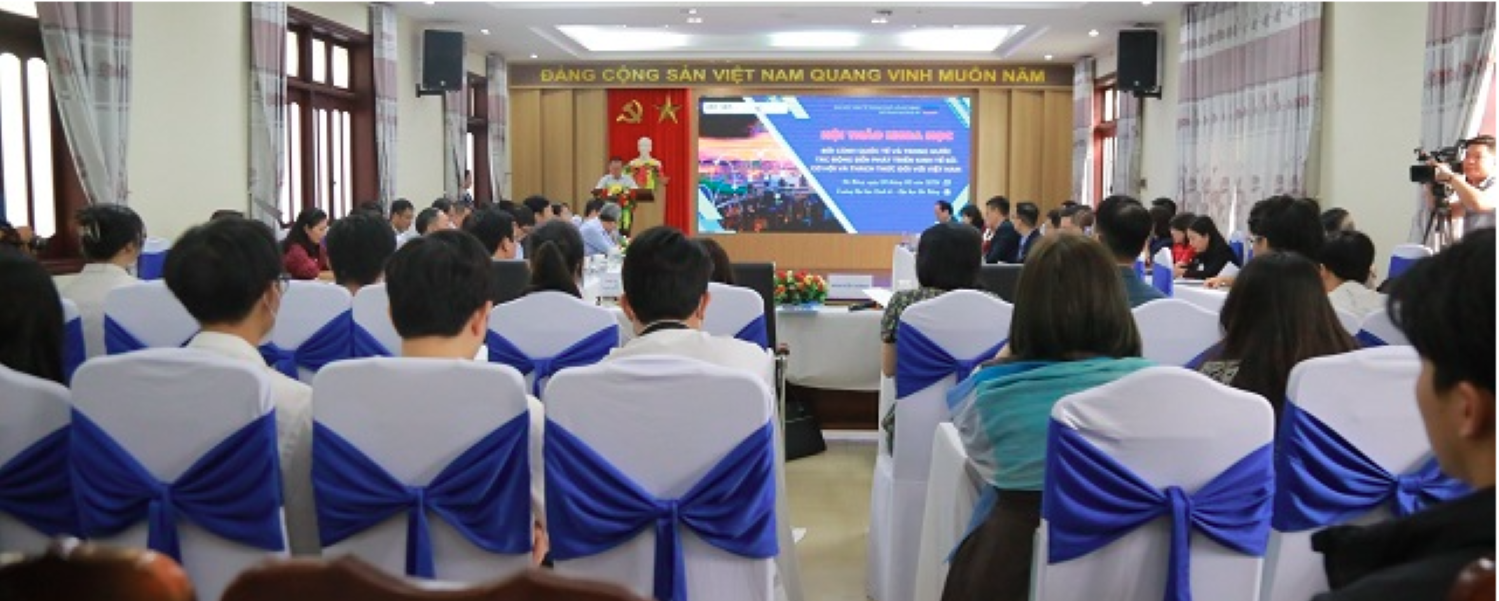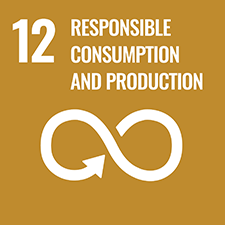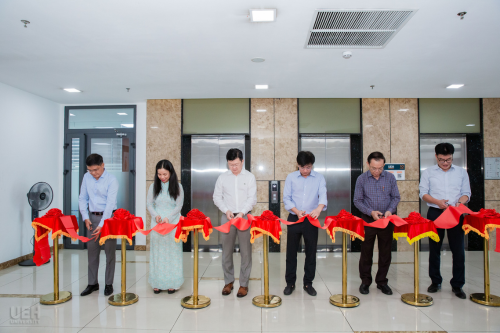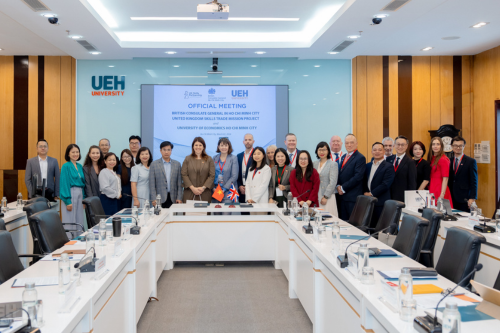
UEH successfully organized the conference on "International and domestic context affecting digital economic development: opportunities and challenges for Vietnam" in Da Nang
18 Mar, 2024
On March 4, 2024, at the Hall of the University of Economics (DUE) - the University of Danang, the University of Economics Ho Chi Minh City (UEH) in collaboration with DUE and the Institute of Business Research - UEH successfully organized a conference with the topic "International and domestic context affecting digital economic development: opportunities and challenges for Vietnam" to implement the research plan on the national science and technology topic "Digital economic development: Orientation and policy solutions", code KX.04.22/21 -25, under the national science and technology program "Political research for the period of 2021-2025".
.jpg)
Overview of the Conference
On behalf of UEH, there was the participation of Prof. Dr. Nguyen Dong Phong - Chairman of the University Council; Prof.Dr. Vo Xuan Vinh - Director of the Institute of Business Research; Assoc.Prof.Dr. Tran Dang Khoa - Director of Management Program, UEH College of Business.
.jpg)
Conference Chairing Committee
On behalf of DUE, there was the presence of Prof.Dr. Truong Ba Thanh - Chairman of Da Nang Economic Association; Assoc.Prof.Dr. Nguyen Ngoc Vu - Director of Danang University; Assoc.Prof.Dr. Vo Thi Thuy Anh - Chairman of the DUE Council; Assoc.Prof.Dr. Le Van Huy - Principal of DUE; Assoc.Prof.Dr. Doan Ngoc Phi Anh - Vice Principal of DUE; Dr. Huynh Thi Hong Hanh - Vice Principal of DUE.
.jpg)
Delegates attending the Conference
Speaking to welcome the Conference, Assoc.Prof.Dr. Le Van Huy - Principal of DUE - remarked: "The fourth industrial revolution has been creating strong and unprecedented changes on a global scale. Countries, including Vietnam, are trying to take advantage of the strong development of the digital economy and technology to create a new competitive edge and seek faster and more sustainable development drivers. In particular, for Vietnam, promoting the digital economy can be considered one of the important strategies to restructure the economy and join the global high-value chain to break the middle-income trap in the last decade. The Government's recent strategies and policies for digital transformation, technology development, and promoting economic sectors associated with digital technology have had certain successes. The proportion of digital economy in Vietnam's GDP in 2023 will reach 16.5% with a growth rate of about 20%/year. Google's report evaluates Vietnam's digital economic growth rate as the fastest in Southeast Asia for 2 consecutive years (2022, 2023), 3.5 times higher than the GDP growth rate. Vietnam is internationally assessed as one of the group of countries with strong digital economic development potential in the world.
Along with great and obvious opportunities, Vietnam's digital economy is also facing many significant problems and challenges. Obstacles within the domestic economy listed as economic structure, technological resources, and business practices as well as unusual fluctuations from the world are resulting in risks and unpredictable impacts on the development of this area. Understanding the opportunities and challenges for the development of the digital economy is an urgent requirement of policy-making agencies, local leaders, the business community, and researchers.
Therefore, the conference "International and Domestic Context Affecting Digital Economic Development: Opportunities and Challenges for Vietnam" is a practical activity, especially in the Government’s implementation of the National Strategy for developing the digital economy and digital society until 2025.
I hope and believe that, with high focus and frank sharing, we will have solid information and solutions to help promote Vietnam's digital economic development."
.jpg)
Assoc.Prof.Dr. Le Van Huy - Principal of DUE - delivering the welcome speech
Speaking at the opening of the Conference, Prof.Dr. Nguyen Dong Phong - Chairman of the Council of the University of Economics Ho Chi Minh City - asserted: "The development of the digital economy is happening strongly and creating significant opportunities and challenges for each country, including Vietnam. This development is driven by the remarkable progress of information and communications, and the rapid shift of the world economy from traditional to digital one. This requires countries to adapt to not only survive but also develop in the new era.
Vietnam has been making continuous efforts to create a favorable environment for the development of the digital economy. The Government has implemented many policies and strategies to promote the development of the digital economy, such as the national digital transformation strategy, digital infrastructure development, and high-quality human resources training in information technology”.
.jpg)
Prof.Dr. Nguyen Dong Phong - Chairman of the University Council - delivering the opening speech
Within the framework of the Conference, there were two presentations by representatives of UEH and DUE, including:
(1) "International and domestic context affecting digital economic development: Opportunities and challenges" by Assoc.Prof.Dr. Tran Dang Khoa - Director of the Management Program, UEH College of Business.
.jpg)
Assoc.Prof.Dr. Tran Dang Khoa presenting his paper
(2) "Digital transformation - roadmap, capabilities, barriers, and challenges: World experiences and lessons for Vietnam" by presented Dr. Le Thi Minh Hang - Dean of Faculty of Business Administration, DUE .
.jpg)
Dr. Le Thi Minh Hang presenting the paper
Through the two presentations, conference participants better understood the current international and domestic context in which digital economic development is facing many opportunities and challenges. Adverse external factors combined with persistent internal restrictions have created a difficult and volatile business environment. In 2023, Vietnam's economy will continue to suffer "double impacts" from these factors. Recognizing these challenges, the Government has introduced policies and solutions to promote economic development. This includes the implementation of Resolution No. 01/NQ-CP dated January 6, 2023, and the Socio-Economic Recovery and Development Program. In addition, Directive 03/CT-TTg dated January 27, 2023 of the Prime Minister has set out key tasks and solutions to support businesses and people. In addition, digital economic development also plays an important role and is one of the three main pillars of national digital transformation. To achieve the digital economy target of at least 20% by 2025, it is necessary to grow 3 - 4 times faster than GDP growth, which is about 20 - 25% per year. This poses difficult tasks and requires groundbreaking new solutions to be completed.
The conference ended successfully and brought many research values for the development of the digital economy in Vietnam. The Organizing Committee expected that the conference "International and Domestic Context Affecting Digital Economic Development: Opportunities and Challenges for Vietnam" would be a useful forum for students, lecturers, researchers, experts, and participating delegates to exchange, share, and criticize issues related to digital economic development in the current domestic and international context. Developing the digital economy will help optimize resources, bringing many benefits, values, and opportunities. On the other hand, the digital economy will pose many requirements, challenges, and difficulties, requiring each country to build an appropriate roadmap in each stage, from building and perfecting institutions and legal corridors to strengthening investing in digital infrastructure and developing digital human resources.
News and photos: Institute of Business Research, Department of Marketing and Communication







![[Research Contribution] Modernizing and Elevating Vietnamese Higher Education: Creating Breakthroughs in High-Caliber Human Resource Development and Talent Cultivation, Leading Research and Innovation](/images/upload/thumbnail/ueh-thumbnail-639083193174001549.png)
![[Research Contribution] Sustainable Manufacturing: A Driving Force for the Green Economy and the Challenges Ahead](/images/upload/thumbnail/ueh-thumbnail-639082294182922007.png)




